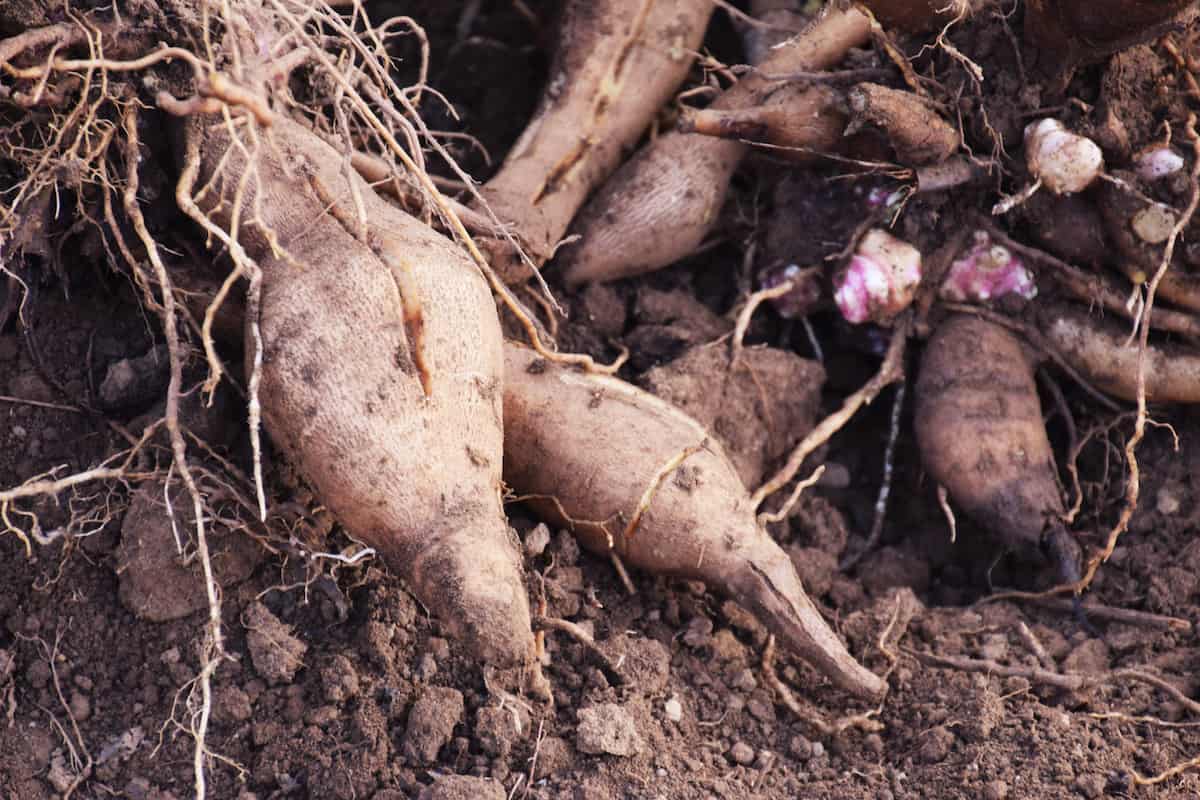Yacon Companion Plants: The Ultimate Guide
Yacon is a perennial plant native to the Andes mountains of South America. It is grown for its edible roots, which have a sweet, apple-like flavor. Yacon is a relatively easy plant to grow, and it can be companion planted with a variety of other plants.
Benefits of companion planting
There are many benefits to companion planting. Some of the most common benefits include:
- Attracting beneficial insects. Some companion plants attract beneficial insects, such as ladybugs and parasitic wasps, which help to control pests.
- Reducing the risk of disease. Some companion plants can help to reduce the risk of disease by releasing chemicals that inhibit the growth of harmful bacteria and fungi.
- Improving soil quality. Some companion plants can improve soil quality by adding nutrients or by suppressing weeds.
- Competition for resources. Companion plants can compete for resources, such as sunlight, water, and nutrients. This can help to prevent any one plant from becoming too dominant.
Choosing companion plants for yacon
When choosing companion plants for yacon, it is important to consider the following factors:
- Planting height. Yacon can grow up to 6 feet tall, so it is important to choose companion plants that are of similar height or shorter.
- Sunlight requirements. Yacon needs full sun, so it is important to choose companion plants that also need full sun.
- Water needs. Yacon needs regular watering, so it is important to choose companion plants that also need regular watering.
- Pest and disease resistance. Yacon is relatively resistant to pests and diseases, but it is still a good idea to choose companion plants that are also resistant to pests and diseases.
Some good companion plants for yacon include:
- Beans. Beans fix nitrogen in the soil, which can benefit yacon.
- Beetroot. Beetroot helps to repel pests, such as slugs and snails.
- Cabbage. Cabbage helps to repel pests, such as cabbage moths.
- Carrots. Carrots help to repel pests, such as carrot flies.
- Celery. Celery helps to repel pests, such as aphids.
- Lettuce. Lettuce helps to attract beneficial insects, such as ladybugs.
- Onions. Onions help to repel pests, such as root knot nematodes.
- Peas. Peas fix nitrogen in the soil, which can benefit yacon.
- Spinach. Spinach helps to attract beneficial insects, such as ladybugs.
Conclusion
Yacon is a versatile and easy-to-grow plant that can be companion planted with a variety of other plants. By choosing the right companion plants, you can help to improve the growth and health of your yacon plants, and you can also attract beneficial insects and reduce the risk of pests and diseases.
FAQ of yacon companion plants
- What are good companion plants for yacon?
Yacon plants are relatively easy to grow and can be companion planted with a variety of other plants. Some good companion plants for yacon include:
* Asparagus: Asparagus is a nitrogen-fixing plant that can help to improve the soil quality around the yacon plant.
* Cucumbers: Cucumbers and yacon plants can help to deter pests from each other.
* Lettuce: Lettuce and yacon plants can both tolerate cooler temperatures, making them good companion plants for cooler climates.
* Melons: Melons and yacon plants can both benefit from the same type of soil and sunlight conditions.
* Peas: Peas are another nitrogen-fixing plant that can help to improve the soil quality around the yacon plant.
- How far apart should yacon plants be planted?
Yacon plants are relatively large, so they should be planted at least 3 feet apart. This will give the plants enough space to grow and spread.
- How much water do yacon plants need?
Yacon plants need regular watering, especially during the hot summer months. However, it is important to avoid overwatering, as this can lead to root rot.
- What kind of soil do yacon plants need?
Yacon plants prefer well-drained soil that is rich in organic matter. They can tolerate a variety of soil pH levels, but they prefer a slightly acidic soil (pH 6.0-6.8).
- How do I protect yacon plants from pests and diseases?
Yacon plants are relatively resistant to pests and diseases. However, they can be susceptible to aphids, slugs, and snails. If you notice any pests or diseases on your yacon plants, you can treat them with insecticidal soap or neem oil.
Image of yacon companion plants
- Radish. Radishes are a good companion plant for yacon because they help to deter pests and diseases. They also have shallow roots, which means they won't compete with yacon for water and nutrients.

- Turnips. Turnips are another good companion plant for yacon. They have similar growing requirements and can help to suppress weeds.

- Beans. Beans are a nitrogen-fixing plant, which means they can help to improve the soil quality for yacon. They also have tall stalks that can provide shade for yacon plants.

- Beets. Beets are a good companion plant for yacon because they help to repel pests. They also have deep roots, which means they won't compete with yacon for water and nutrients.

- Peas. Peas are a good companion plant for yacon because they help to attract pollinators. They also have shallow roots, which means they won't compete with yacon for water and nutrients.

Post a Comment for "Yacon Companion Plants: The Ultimate Guide"